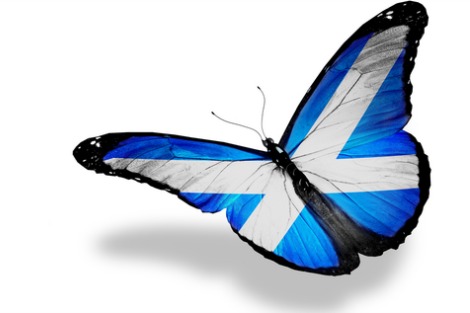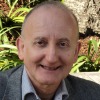 I came to Australia in 2007 for six months and am now leaving after six years. There is a nice symmetry to the advent and the departure. The first party I attended in 2007 in Sydney was on election night à la David Williamson and I leave soon after an election with a very different result (or not?) but one hardly greeted with unalloyed joy.
I came to Australia in 2007 for six months and am now leaving after six years. There is a nice symmetry to the advent and the departure. The first party I attended in 2007 in Sydney was on election night à la David Williamson and I leave soon after an election with a very different result (or not?) but one hardly greeted with unalloyed joy.
My fellow countrymen and women, deliberate Scots emigrés, think me mad in leaving a permanent position, sun, beauty, fireworks, koalas, schooners and the chance of an Australian passport to return to wet, cold, possible penury, vitamin D tablets instead of actual sunshine, rain (slightly different from 'wet'), snow, midges and the Sunday Post, our sentimental Sunday weekly made famous by the phrase that 'Scotland would never be free until the last Presbyterian minister had been strangled with the last copy of the Sunday Post'.
Yet I am going home.
David Malouf, in The Conversations at Curlow Creek, describes home for his Irish protagonist, Adair, whose only memory of Dublin was of 'cats' piss on coal', as 'not four walls and a roof, with a fire and a chair before it, but the place of one's earliest affection, where that handful of men and women may be found who, alone in all the world know a little of your wants, your habits, the affairs that come nearest your heart, and who care for them'. That comes near to my reasoning for returning but there is also above all the matter of the referendum.
There has been little interest in Australia about the referendum to be held on 18 September 2014. It will ask Scots 'Should Scotland become an independent country?'. There is nothing surprising about it. Ever since I was a teenager in the 1960s, Scottish political debate has been dominated by the question of Scottish sovereignty. The success of the main protagonist, the Scottish National Party (SNP — note 'National' not 'Nationalist', i.e. of a nation not an ideology) is the reason for the existence of a Scottish Parliament in Edinburgh.
As the Scottish Government, the SNP, under First Minister Alex Salmond, has administered the country brilliantly, first as a minority government and now as a government with a substantial majority. British PM David Cameron, whose party has been reduced to one MP in the Westminster Parliament since Thatcher wreaked economic vandalism on Scotland, acknowledges that Salmond has the mandate to call a binding referendum to end the Union and begin life anew as a modern, social democratic state.
And that is what many of us intend to usher in. In the post-war era, the Scots, with their distinct legal system requiring separate legislation and now domestic parliament, have not been represented by most UK governments, which is not exactly democracy. Within 25 miles of Scotland's largest population centre lurks the Trident nuclear deterrent — refused by Norway and Denmark but accepted by the UK and put in a 'remote' area.
While a pro-EU social democratic party is in power in Scotland, our neighbours are opting for the UK Independence Party (UKIP) which wants to haul the UK out of the EU and has forced Cameron to hold a referendum on EU membership in 2016. The UKIP package includes curbs on immigration (Scotland needs refugees), vouchers for education so that you can choose private schools — which are as scarce as a Tory in less class-ridden Scotland, scrapping investment in renewable energy (Scotland is on track as being one of the world's greenest countries) and reducing the powers of the Scotland Act if the Scots get too uppity.
The referendum is essentially a contest between this insular, Little Englander nightmare and a place in the world as a sovereign state, following a Nordic model of social democracy and adding the Scottish ingredients of a communitarian society, an anti-nuclear future and economic decisions that take people, not just ideologies, into account. It's a case of 'Stop the world. Scotland wants to get on!' That's worth leaving Australia for!
 Duncan MacLaren lectured at Australian Catholic University in international development studies and coordinated its program to offer tertiary education to Burmese refugees and migrants on the Thai-Burma Border. He is a former Secretary General of Caritas Internationalis and was based in the Vatican for 12 years. He is returning to Scotland to work for the referendum and to undertake doctoral studies in the School of Critical Studies at the University of Glasgow.
Duncan MacLaren lectured at Australian Catholic University in international development studies and coordinated its program to offer tertiary education to Burmese refugees and migrants on the Thai-Burma Border. He is a former Secretary General of Caritas Internationalis and was based in the Vatican for 12 years. He is returning to Scotland to work for the referendum and to undertake doctoral studies in the School of Critical Studies at the University of Glasgow.
Scottish butterfly image from Shutterstock